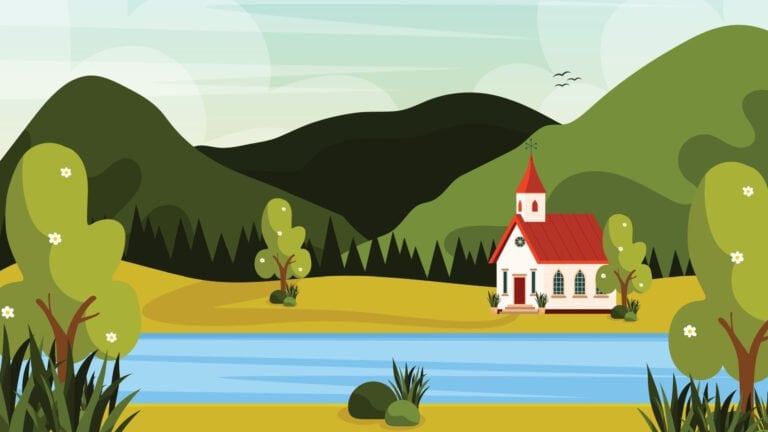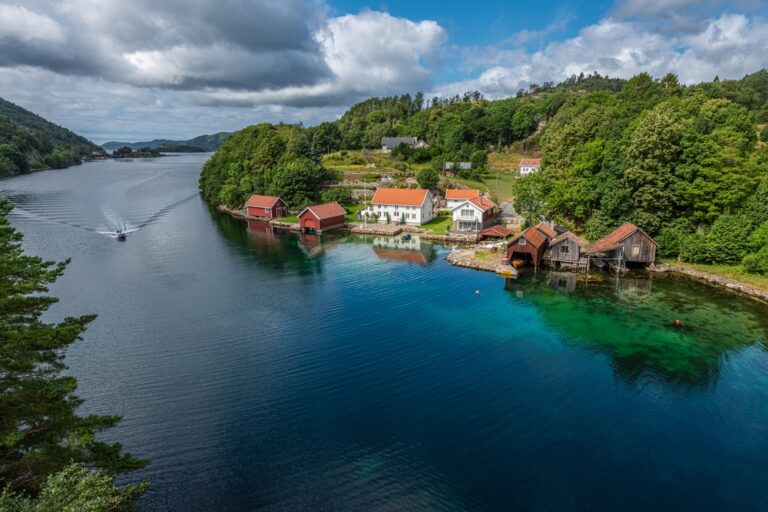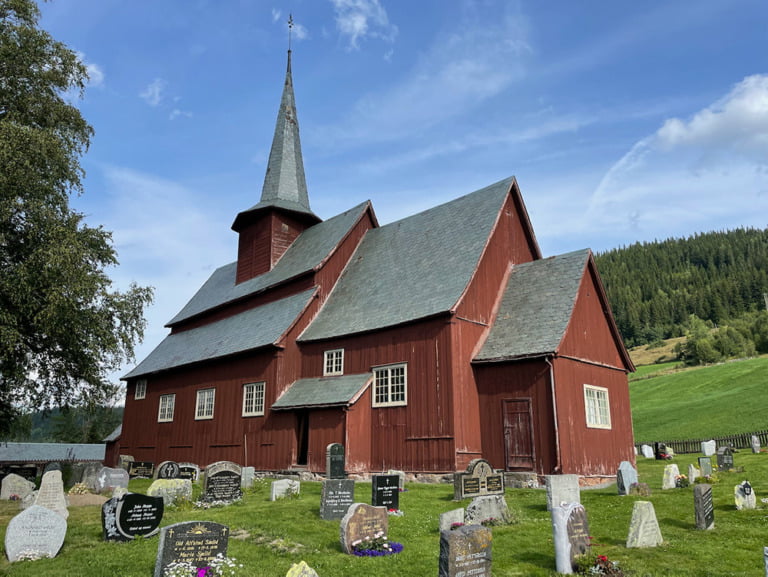Growing up in Norway’s Bible belt in the 70s and 80s made for a very different upbringing than most people have today. So how was it to grow up in an environment like that?
There are “Bible belts” in many countries, for example in the southern part of the US and in the Netherlands. Not surprisingly, such areas have a high concentration of people with Christian faith, and general values are also often conservative.

Norway’s Bible belt is roughly the southwest and south of Norway. Typical characteristics of the area are higher church attendance than average, support of Christian political parties, fewer divorces and more marriages.
The Bible belt is also home to missionary organizations and other more conservative and smaller Christian communities than the mainstream Lutheran Protestant.
Norway in the 70s and 80s
When I grew up in the 70s and 80s, Norway was quite different from today. It was very homogeneous, and this especially applied to more remote places.
Where I lived, everyone was white and Norwegian born, except the odd Brit or Portuguese. We read the same magazines and a few selected newspapers, we loyally watched the same shows and Barne-TV at 6pm. News broadcast was solely presented by the State run NRK. We didn’t even get Swedish TV on the coast.
We also had limited access to popular culture, and were behind when it came to fashion. Movies were shown in a community house about once a month; always the most popular American movies.

Children played in the streets and the woods without being supervised. We developed creativity and fantasy, bravery and independence. On the other hand, we weren’t taught tolerance and encouraged critical thinking in the same way children do today.
Does it sound like I grew up in another era and not in a modern Western country? Of course this is generalized. But it is the way many Norwegians have grown up. It is very different from my Canadian husband’s upbringing, and from the way most children in Norway grow up today.
As for people’s mindset, most were humble and respected authorities. The Norwegian attitude of superiority is something quite recent. I think this started to change when the oil from the North Sea brought unfathomable revenue to the country. This seems to have gradually increased the national confidence level as well.
So how is it to grow up in an environment like this in combination with powerful elements of Christian faith?
A safe environment
Most people who grow up in communities like this feel safe and happy, and have a great sense of belonging.
There is little crime, and people look out for one another. In addition to church service, there are a lot of social events, where it is encouraged that everyone participates. This is regardless of family situation or age.

All of this can prevent loneliness and exclusion. It was also totally acceptable and very common to drop by someone’s house unannounced.
Pietism
Some people were more conservative than others, and some weren’t even religious. However, there were strong forces trying to push people into living more pious lives.
Something that was considered sinful by the majority of the municipal council was the consumption of alcohol. At the time, Norwegian municipalities could refuse by law to sell beer in grocery stores, and this applied to where I lived.
This meant everyone had to place orders for beer by mail service. The closest vinmonopol was also around 3 hours away by car. This Norwegian law was not scrapped until 2003.
I guess the assumption is when alcohol is less available, people will drink less. Although I strongly suspect this had the opposite effect, mainly because people ordered in larger qantas.
But also because people seemed to consume more hard alcohol and home brew. There were numerous wild parties (bygdefester) with extremely heavy drinking.
Double standards
Some parents were quite creative in the attempt to keep children away from sinful activities. An example is when we had dance classes at school. This was traditional Norwegian folk dance, and not exactly cheek to cheek.
Nonetheless, some conservative parents felt the school was exposing children to sinful activities. The school, of course, had no choice because it was part of Norway’s standard curriculum.
The compromise, in the end, was to rename this course from “dancing” to “rhythm play”. Even if the education was unchanged, this was perceived as less sinful.
It was extremely hard to stand out
I never know of anyone who was gay when I grew up. The majority also lived in nuclear families with children, and hardly anyone got divorced.
If you did something out of the ordinary, people started to gossip. When a girl chose a humanist confirmation and not Christian, this was practically scandalous.
In a society where you always think about what the neighbors would say, it is extremely hard to stand out. And if you do, you usually keep it to yourself.
Most people probably weren't aware that the community practised some sort of social control that was very efficient, in order to keep the society homogenized.
The dark side of the Bible belt
Nowadays, Norwegian children learn about other religions, humanism and spirituality. But when I grew up, religious education in primary school in Norway was solely “Christianity”.
And even though some parents weren’t Christian or religious at all, they didn’t speak up or even question the way Christianity was taught at school. This was probably because schools back then were perceived as an authority.
Most children believe what they are told, and especially when not encouraged critical thinking.And when belief systems are taught as an absolute truth in combination with creating fear, this also makes indoctrination possible.
I wouldn't say the school did this deliberately, but no one seemed to realize the effect all the talk about Hell and the Devil could have on the most sensitive children.
I remember when I answered a question on a test something like “Hell is a place where you will suffer excruciating pain forever.”
The teacher didn’t seem to think about how a 5-grader could believe such a thing, and how deep a fear it could create. The fact is it sounded so frightening I refused to participate in dance class because I thought it was sinful.
I turned out fine, it was after all only about dancing, and I came from a home with tolerant parents. But for young people who are unsure of their sexuality or identity, being exposed to this kind of education could be devastating.
Do such environments exist today?
As Norway is becoming more secular, the Bible belt is also changing and becoming more progressive.
But there are still some very conservative Christian churches and communities all over Norway.
They typically have strict rules for what is acceptable behavior, and a narrow-minded outlook on how people should live their lives; heterosexual and married, where children have to be born in marriage, and where abortions and homosexuality is not accepted.
Some even practice conversion therapy, where the goal is to convert homosexuals into being heterosexual. Methods are therapy sessions, spiritual interventions, but may also involve more physical methods.
This is still legal in Norway, but the Government recently proposed a new law to forbid this practice. There is political agreement in the Parliament, but there is still resistance. For example the smaller Christian Party (de Kristne), still defends conversion therapy, or what they call “spiritual care” of homosexuals.
As for indoctrination, in the US, for example, around 5-8% of teachers endorse creationism and not evolution, and only around ⅔ teach evolution as settled science. Creationism is the belief that God created humans in our present form within roughly the past 10,000 years. This is something 40% of adult Americans still believe today.
Now Church and State have separated, children learn about other religions, and public schools are not allowed to preach Christianity or any other religion.
Children are taught to be more critical, and parents are more proactive and not so humble. And no one has to order beer through mail order. Therefore, the Bible belt today is not like the environment I grew up in.
But such communities still exist all over the world where conservative Christian forces are very powerful, and where people are supposed to live pious lives and not stand out.
And even though most people are happy and others laugh about double standards, there is a minority where such environments are straight out unhealthy.
Personally I wish I wasn’t exposed to that kind of education, that I grew up in a more diverse environment, and that people my age also learned tolerance and acceptance like most children in Norway do today.


Where has tolerance and lack of Christianity helped any country!
Show me any country run by religious laws and I’ll show you a country full of violence and racism. When has religion ever helped any country? Crusades? Inquisition? Burning of witches? Child rape in the churches?!
Yes, now that there is less Christianity, there’s more violence, people seems to care less about others and even the tradition of dugnad is almost gone. Norway is going down in the dumps. By the way, it was not the oil that made Norwegians think they are so good or better. It was the prime minister gro Harlem Brundtland, she came up with the sentence: it’s typical Norwegian to be great. Some people call her landsmoderen (mother if the country) others call her landsmorderen (murderer of the country). Go figure.
That’s a load of rubbish. Show me any country run by religious laws and I’ll show you a country full of violence, racism and political turmoil. Is there more violence today than before? Maybe, maybe not. But our society has changed, there are more people and more immigration so naturally you will have changes. It’s got absolutely nothing to do with more or less Christianity. Do you know how much violence and abuse that goes on inside the churches?! I grew up in a church environment myself and I’m happy I threw that religion in the dumpster where it belongs.
I see a bunch of stupid, intolerant comments here. Throwing all religions into one bucket is an utter nonsense. Christianity has nothing in common with Islamic countries.
I’d really like to live in such a community – safe, relatively free from leftist propaganda in schools and caring about all their members.
@Kjetil I’m pretty sure then that you’d be delighted to live in North Korea. After all, they threw all the religion in the dumpster, just like you…